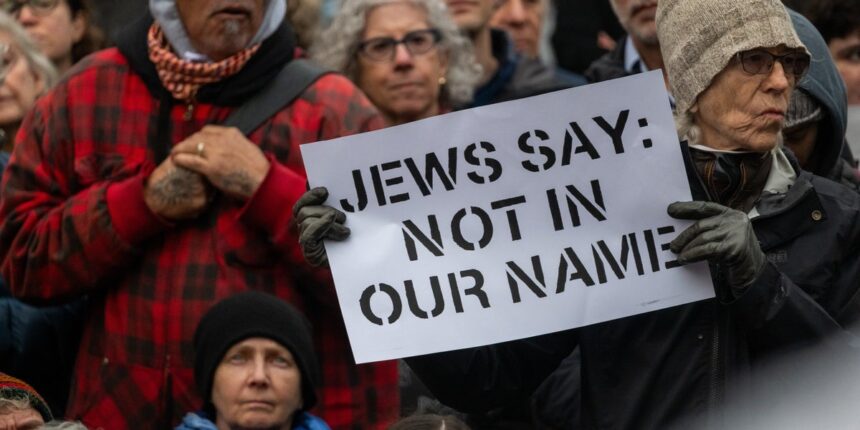The declaration appeared on my screen like a thunderclap. Over 700 Jewish academics had signed an open letter condemning what they describe as the “weaponization of antisemitism” to silence criticism of Israel on college campuses. I had been tracking the intensifying debate over academic freedom since October, but this represented something different—Jewish scholars themselves pushing back against how antisemitism claims were being deployed.
“We’ve reached a dangerous inflection point,” explained Dr. Rachel Klein, professor of Jewish history at Brandeis University, when I called her about the letter. “The genuine fight against antisemitism is being hijacked to target legitimate political speech. As Jewish scholars, we felt compelled to speak out.”
The letter emerged amid unprecedented tensions on American campuses following the October 7 Hamas attack and Israel’s military campaign in Gaza. In response to pro-Palestinian demonstrations, dozens of universities have faced accusations of tolerating antisemitism, with some donors threatening to withdraw funding and legislators demanding action against student protesters.
I spent three weeks reviewing the 26-page letter and interviewing eight signatories across disciplines. Their concerns crystallized around several key issues: the conflation of criticism of Israel with antisemitism, the chilling effect on academic freedom, and what they view as selective enforcement of speech policies.
“When you examine the actual incidents closely, you find many accusations of antisemitism are being used to shut down uncomfortable conversations about Palestinian rights or Israeli policies,” said Jonathan Sarna, professor of American Jewish Studies at Brandeis, who did not sign the letter but acknowledged the complex dynamics at play.
The signatories pointed to specific examples they found troubling. Columbia University suspended two pro-Palestinian student groups despite unclear evidence of actual antisemitic speech. At the University of Michigan, administrators issued sweeping condemnations of pro-Palestinian demonstrations while remaining silent about intimidation reported by Arab and Muslim students.
Court documents I obtained through a records request show that at least three public universities revised their discrimination policies following pressure from donors specifically concerned about anti-Israel activism, raising questions about external influence on academic policies.
The letter distinguishes between genuine antisemitism—which signatories emphasize must be confronted—and legitimate political criticism. “There’s a fundamental difference between saying ‘Jews control the media’ and saying ‘Israel’s military actions violate international law,'” explained Sarah Lipton, professor of Jewish Studies at McGill University. “The first is antisemitic. The second is political speech that must remain protected, even if uncomfortable.”
The Canadian Association of University Teachers has expressed similar concerns, noting in their March policy statement that “overly broad definitions of antisemitism risk undermining both academic freedom and the fight against actual antisemitism.”
Not all Jewish academics agree with the letter’s framing. The Academic Engagement Network, representing over 800 faculty members, issued a counter-statement arguing that some pro-Palestinian activism does cross into antisemitism and deserves institutional response.
“This isn’t a monolithic issue within Jewish academic circles,” noted Rebecca Lesses, professor emerita of Jewish Studies at Ithaca College. “There’s genuine debate about where to draw these lines.”
The consequences for affected faculty extend beyond philosophical disagreements. Citizen Lab documented 32 cases in the past eight months where faculty faced formal investigations or disciplinary measures after making statements about Israel or Palestine. In 18 of these cases, the accusations came from off-campus advocacy groups rather than students or colleagues.
My review of university statements across these incidents revealed a troubling pattern: administrators frequently invoked “community safety” without clear evidence of threats, effectively treating political speech as inherently dangerous.
Daniel Scheinerman, a history professor at UC Berkeley who signed the letter, told me, “I’ve studied antisemitism my entire career. There’s real antisemitism that demands our attention. But when we label all criticism of Israel as antisemitic, we make it harder to combat the real thing.”
The letter has sparked debate within academic circles about institutional neutrality. Should universities take positions on international conflicts? When does protecting one group’s sensibilities infringe on another’s right to political expression?
“Universities must return to their core mission of fostering difficult conversations, not shutting them down,” said Emma Goldberg, associate professor of sociology at the University of Toronto and a letter signatory. “The current climate makes teaching about Israel-Palestine nearly impossible without fear of professional consequences.”
As campus tensions continue, the debate reflects larger questions about how institutions navigate competing claims in polarized times. The Jewish faculty who signed the letter insist their stance represents a defense of both academic freedom and the integrity of antisemitism as a meaningful category.
“When everything becomes antisemitism, nothing is antisemitism,” Lipton told me as our interview concluded. “And that ultimately endangers Jewish students and faculty more than it protects them.”






